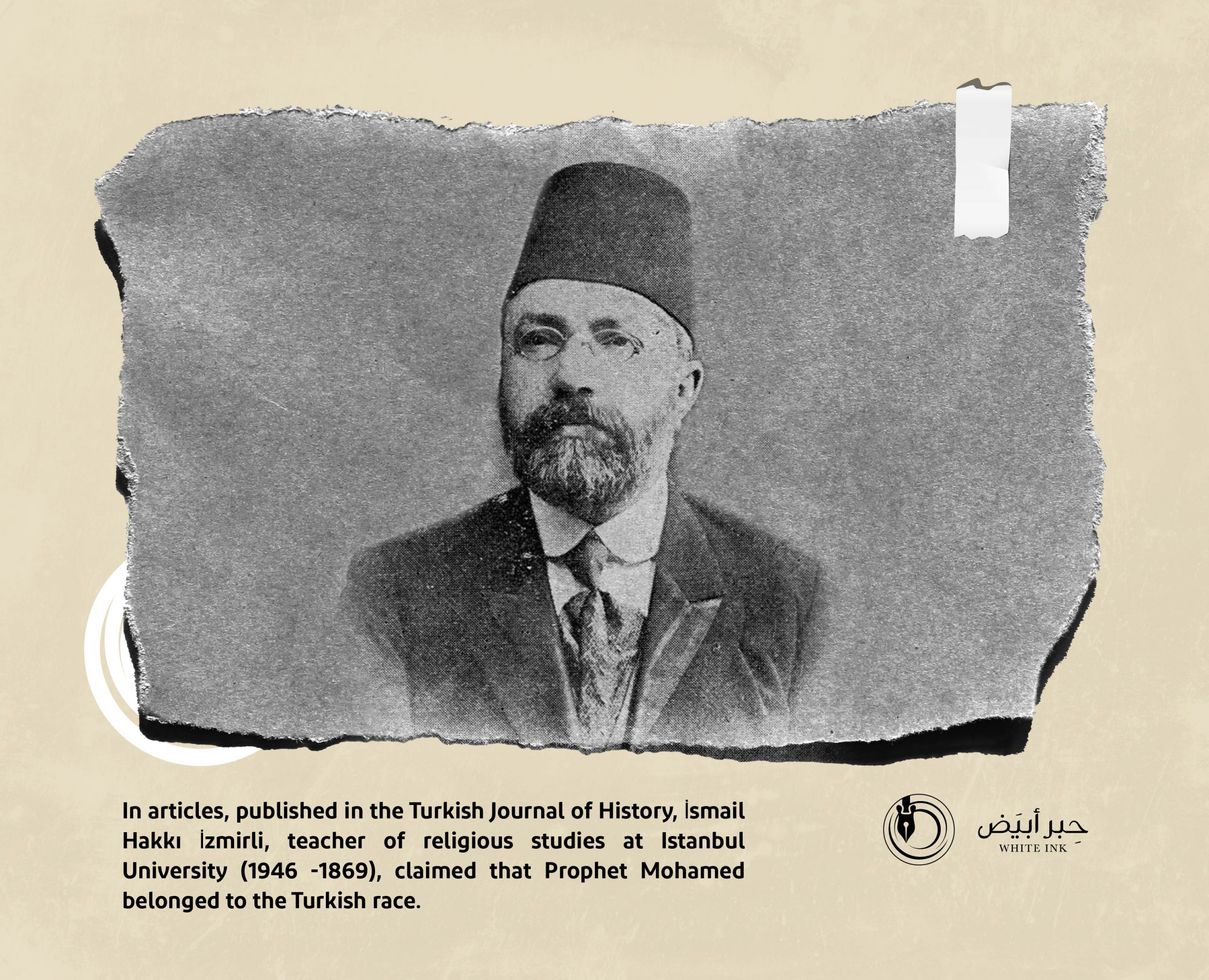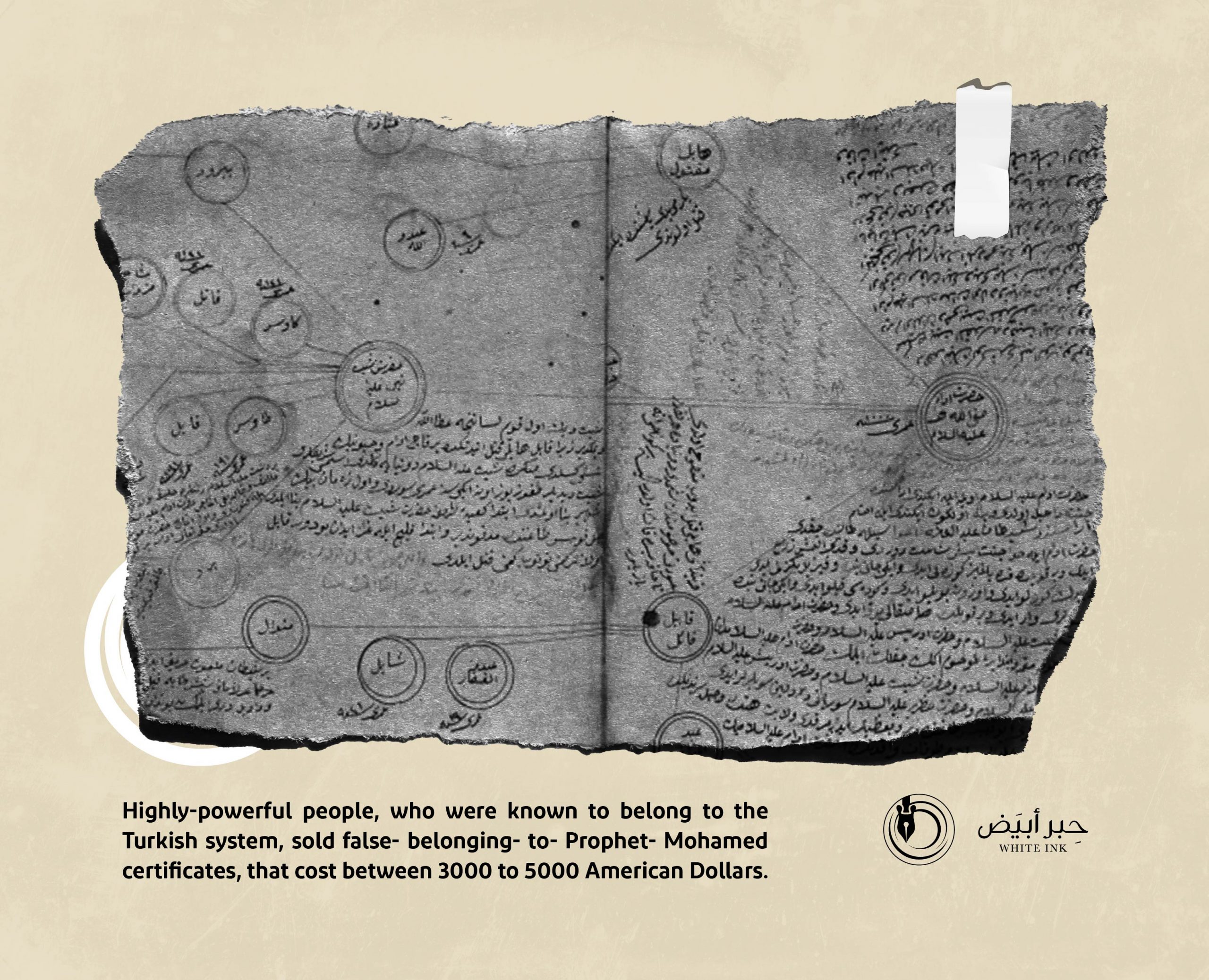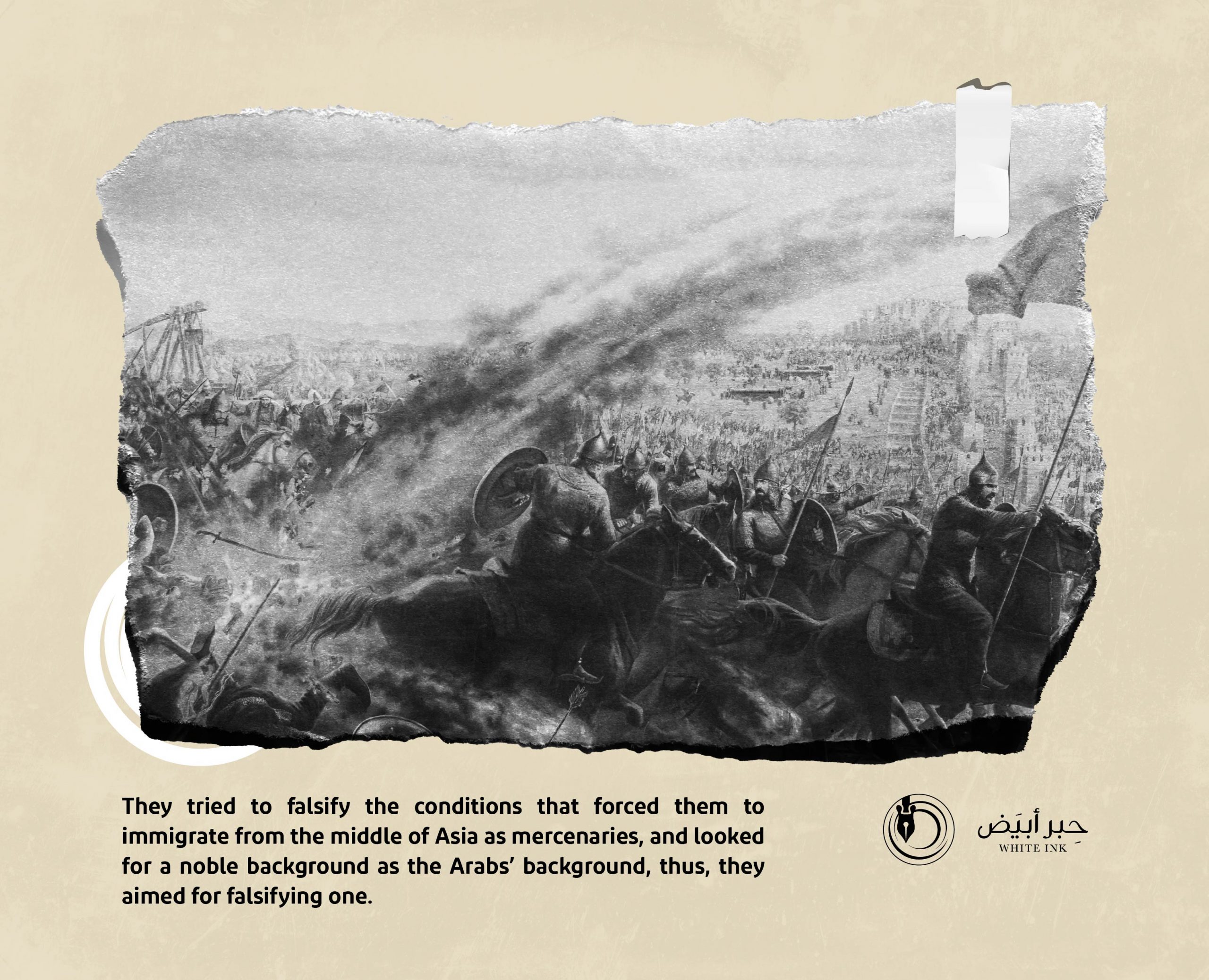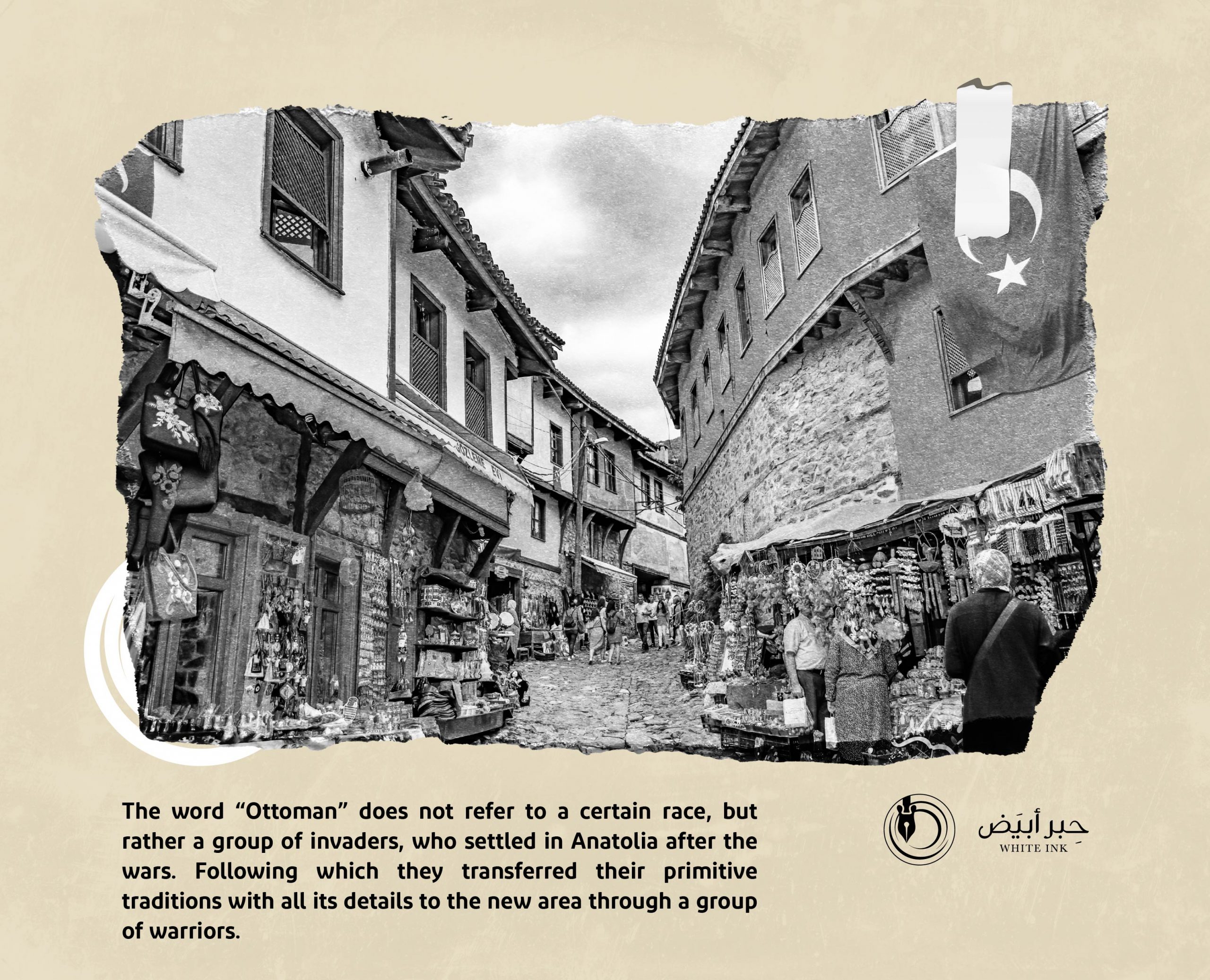
The Turks in Arab History
They came as slaves and bullied the Arabs after they became free
The Ottomans invaded 3 continents using the "Arabic language" and then turned against it.

The Turkish Association of Union and Progress (İttihad ve Terakki Cemiyeti) emerged as a result of the resurgence of Turanian nationalism for the Turks, motivated by being influenced by the Masonic lodges that entered Turkey in 1717 AD through the establishment of an association for it in Istanbul and later affected by the spirit of the French Revolution.
In addition to the inherent hatred of the Ottoman Empire, which drives it to hate other cultures, unlike the religion of Islam, which calls for acquaintance between tribes and peoples, friendship, mercy and equality among all, Istanbul has adopted a policy of exclusion and bullying against Arab culture. This is despite the fact that the Arab culture was the most important and largest weapon for the conquest of the Arab world and other regions. It is possible that the Ottoman Empire was boasted of its culture after its numerous victories and its desire to glorify oneself, until their belief in Allah and surrendering to Him became possible only by believing in all Turkish principles and applying them.
They violated the covenant with the Arabs because of their sense of cultural and historical weakness.



1. Said Berjawi, The Ottoman Empire – Its Political and Military History (Beirut: Al-Ahlya for Publishing and Distribution, 1993 AD).
2. Talal Al-Tarifi, the Ottomans – This was not a lie (Riyadh: Eatlaf publishing house, 1441 AH / 2020 AD).
3. Muhammad Al-Imrani (580 AH / 1184 AD), News in the History of the Caliphs, edited by: Qasim Al-Samarrai (Cairo: Dar Al-Afaq Al-Arabiya, 2001 AD).
4. Muhammad Al-Dhahabi (748 AH / 1347 AD), History of Islam and the deaths of celebrities, edited by: Omar Al-Tadmouri, 2nd Edition (Beirut: Dar Alkitab Alarabi Publishing, 1993 AD).
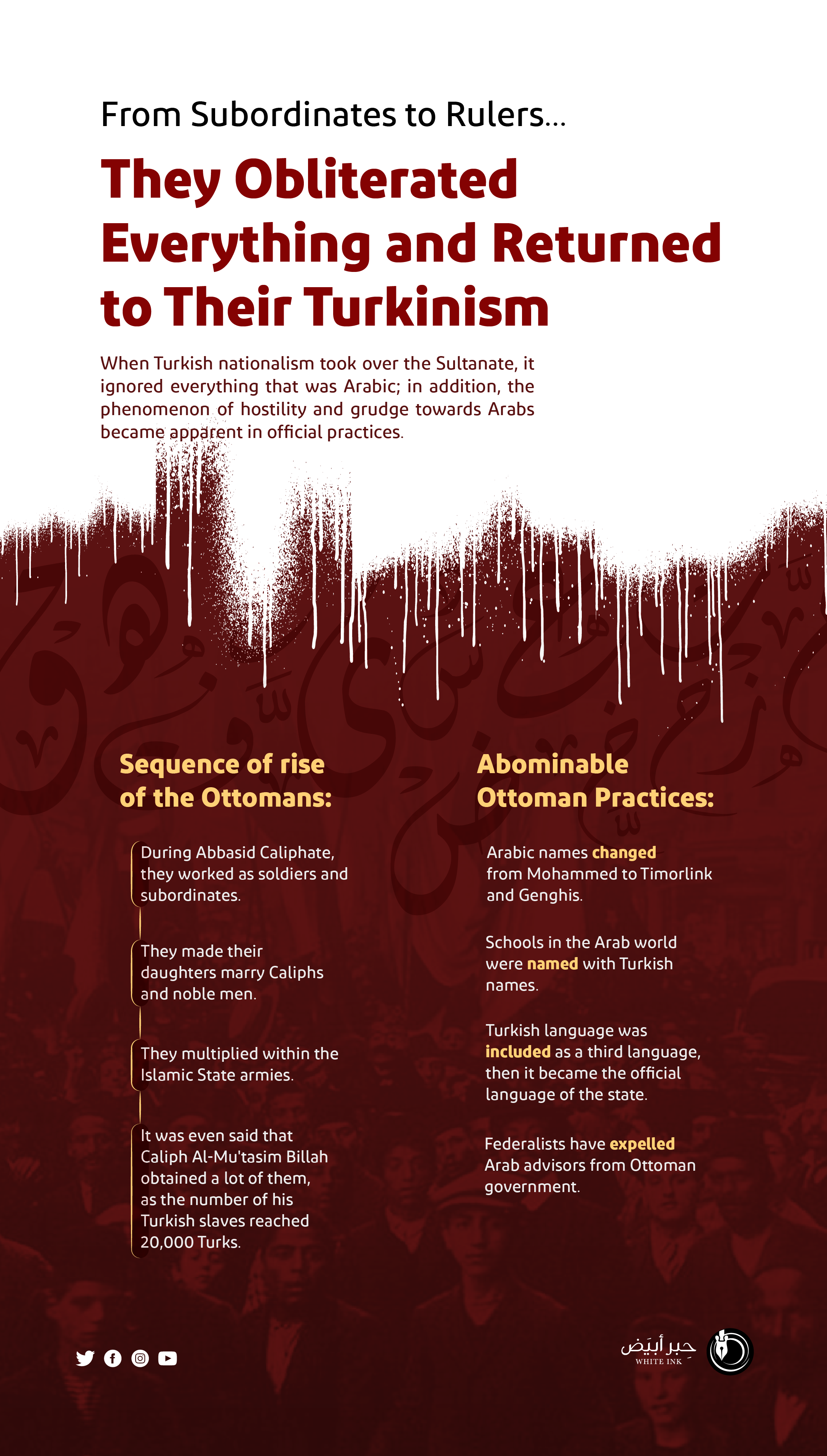

In order to control them and Turkify them
They imposed teaching Arabic grammar in Turkish to the children of Arabs
Turkification of Arabic names from Muhammad to Tamerlane and Genghis.

When Nuri said with wild danger that the Turkish language should be the language of religion, he is aware of what happened in Istanbul by imposing the change of names of people throughout the country from Arabic to Turkish names, including the name of Muhammad. Names such as Tamerlane and Genghis spread outside their original environment throughout the Arab and Islamic world. They also dedicated prayers to the Turks, unlike other nationalities, in which they chant the white wolf, which is one of the ancient Turkish gods, and one of their slogans.
Jalal Nuri: The Turkish language should be the language of religion.

They targeted Arab schools and gave them Turkish names.



1. Al-Qiblah newspaper, “Who is Obaidullah, the author of a new people book?”, first year, Mecca (Shawwal 29, 1334 AH).
2. Diary of Suleiman Faidi, edited by: Basil Suleiman Faidi, 3rd Edition (Beirut: Dar Al-Saqi, 1998 AD).
3. George Anthony, The Awakening of the Arabs, translated by: Nasir al-Din al-Assad and Ihssan Abbas, 8th Edition (Beirut: Dar Al-Ilm LilMalayin, 1987).
4. Sati` Al-Hosari, The Arab Countries and the Ottoman Empire, 2nd Edition ((Beirut: Dar Al-Ilm LilMalayin, 1960).
5. Talal Al-Tarifi, the Ottomans – This was not a lie (Riyadh: Eatlaf publishing house, 1441 AH / 2020 AD).

By Obliterating the Language of the Qura’n..
They Wanted to Destroy the Arab Identity and Remove Its Heritage
Arabic also remained the master of languages in Arab and Islamic world during middle ages. Arabic was the crucible that embraced cultural, intellectual and literary heritage. It was rather a civilizational container of all spectrums of the nation whether it was political, religious or sectarian.
Arabic went through a dangerous turning point only when fragmentation swept the Arab body, and greed pervaded the Arabian land controlling the hearts of foreigners and non- Arabs. Arabian land became the desire of invaders and aspiration of tyrants including Crusaders, Tatars, Mongols and Turks. Then, the legend of Arabs ended, and weakness was deeply rooted in them. Their language became weak so its literature lapsed, and its flow declined. In addition, it was swept by waves of removal, distortion, and counterfeiting. Those ages were called the Era of Decadence.
Arabic Language was the master language during middle ages.

Arabic embraced the arts of cultural, intellectual and literary heritage.

Suleiman the Magnificent has included Turkish Language along with Arabic and Persian languages.

The aim of Ottoman invasion of Arab countries was to spread the Turkish identity.



1. Asaad Dagher, Arab Revolution: Introductions, Causes, Results, (Cairo: Hindawi Foundation, 2012).
2. Sohaila Al- Rimawi, Jma’iah Ala’rbiah Alftaah Alsriah- Drasah Wthaa’kiah 1909- 1918 (Amman: Majdalawi House, 1988).
3. Sati’ Al-Husari, Arab Countries and Ottoman Empire, 2nd edition (Beirut: Dar El Ilm Lilmalayin, 1960).
4. Naguib Azoury, The Awakening of the Arab Nation, translated by: Ahmed Bou Melhem (Beirut: Arab Institute, R&P).
5. Talal Al- Tarifi, Ottomans, Not a Tale Invented, 4th edition (Riyadh: Eatlaf House, 2020).

They Praised Their Offspring and Changed Their Names..
Turks..
Repudiated Everything that was Arab
They worked on publishing books that support the Turkish national orientation.

Federalists dismissed all Arab Ministers from government.

Subsequently, federalists Turkified the University of Istanbul as they appointed (Shamsulddin Kun Al- Tali) as a professor of history there; because he was known for his strong distaste and hostility towards non- Turkish elements, and his adherence to Turkinism. He wrote, in eastern Turkish history, his book which he titled (From Past to Future).
Obliteration became worse as higher authorities of Turkish State decided a critical precedent towards Arabian heritage. After hearing the speech of the President of the Turkish Republic, Mustafa Kemal Ataturk, upon opening session of the new council, the council decided the compulsory use of Latin letters after a certain period. Then, they directly printed school books in the new letters. Official departments were required to write their reports and conduct their processes in the new letters provided that the use old letters shall end.
Turkish Language Association was formed to be the last treacherous blow against Arabian heritage in Turkey. Turkish writer (Roshan Ashraf en Ayden), who was the Turkish ambassador in London, published a book which implied how the Society for Research on the Turkish Language was founded. The writer has mentioned that he was invited to the Presidential Palace of Mustafa Kemal Ataturk in the evening on July 11, 1932. He found Ataturk in a meeting with the members of the Turkish Historical Society. After Ataturk had finished discussing historical issues, he turned to the attendees and said: “Now, we have finished the works of historical conference, I think it is time to inevitably think of our language issue. I suggest that we establish a new association called the Society for Research on the Turkish Language which shall be concerned with linguistic affairs in terms of derivation, morphology, and origins of the language; as well as creating new expressions and parsing issues.”
President Ataturk took a personal interest in excluding Arabic language and replace it by Turkish language.

The Society for Research on the Turkish Language held four major language conferences which have been headed by the President of the Republic Kemal Ataturk in person, in 1932. They aimed at eliminating Arabic language, the language of the Holy Qura’n; and using Turkish Language as the official language of the state. In addition, processes of the state shall be conducted in Turkish language instead of Arabic. Society for Research on the Turkish Language was a racist phenomenon of hostility and grudge towards anything related to the heritage and culture of Arabs, even journalists had to revise Turkish language and get rid of Arabic vocabulary.
Certainly, the amount of Turkish grudge towards Arabs drew the attention of the President of the Turkish Republic, Kemal Ataturk, in person to the Society. He attended the Society meetings and conferences for Turkish language, and to eliminate Arabic language, the language of the Holy Qura’n. This confirms the extent of grudge and hatred of Turks towards Arabs.


1. Fuad Hamza, Wsf Trkya Alkmaliah (Beirut: Dar Al- Jadeed, 2013).
2. Memoirs of Suleiman Faydi and Basil Sulayman, 3rd edition, (Beirut: Dar Al- Saqi, 1998).
3. Naeem Al- Yafi and Khalil Al- Musa, Arab and Armenian Struggle against Ottoman Colonization, (Damascus: Dar Al- Hiwar for Publishing, 1995).


